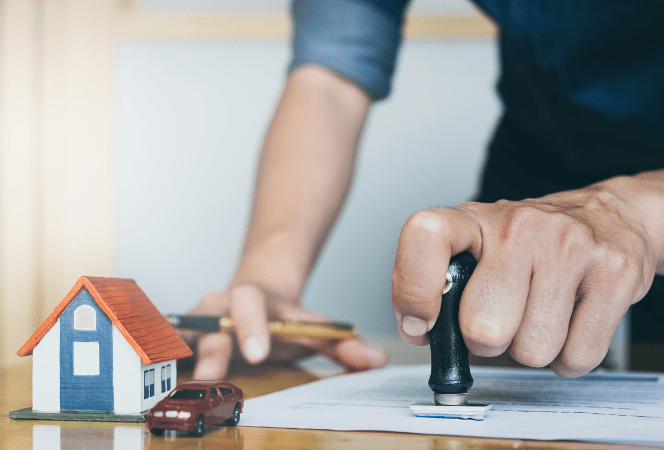What fundamentally distinguishes the Spanish buying and selling process from that of other European countries are mainly the competencies and missions assigned to the notary in the real estate transaction.
In many European Union countries, suchas Germany, Belgium, France, the Netherlands and Switzerland, the notary participates in the entire procedure. It also has the legal status of a friendly magistrate (non-contentious justice). In this capacity, it develops authentic instruments that have legal value in the eyes of the law.
In the context of a real estate sale, in most of the countries mentioned above, the notary plays a central role in the transaction. Therefore, the notary has a number of different tasks to accomplish:
- advising its clients on real estate legislation (obligation of advice and information);
- accompany and defend the interests of the seller and the buyer throughout the sales procedure;
- carry out a legal and urban study, gather and verify the validity of all necessary documents (deeds, urban documents, mortgage situation of ownership, accuracy of diagnoses, declaration of burdens of co-ownership, certificate, right of prelation of the municipality, etc.);
- draft the deeds, authenticate them (sales commitment and deed of sale) and draft the contracts;
- to ensure the proper functioning of transactions and to track them;
- ensure legal certainty of transactions in order to avoid any litigation;
- acting as a financial intermediary when collecting the product from sale,
- collect taxes, various charges and fees generated by these acts or sales on behalf of the State.
In Spain,as a justice officer, the notary represents the State and not the interests of the parties. Although its intervention is mandatory, it is not enough to guarantee the security of the purchase, since it only intervenes at the time of the deed of sale.
Therefore, its role is limited to a general mission of compliance with the documents:
- to verify that the sales contract and related documents comply with the legal conditions imposed by current legislation and thus ensure the legal certainty of the transaction;
- verify the legal capacity of the parties and the identity of the parties and witnesses when signing the deed of sale;
- to verify the registration of the title of ownership of the property;
- validate the deed of sale (Writing) that allows the new owner to register his property in the register of the property and be recognized as such before any administrative or judicial authority.
Therefore, it does not have the function of performing most of the tasks listed above.
Comprehensive legal and urban controls are not within your competence. Documents from the city council, cadastral registration and local and regional planning bodies are not consulted or verified.
The notary does not prepare the sales contract. It is drafted by a lawyer or by the real estate agency responsible for the sale of the property.
Similarly, it does not act as a financial intermediary between the seller and the buyer. Payments are made by prior agreement, to the parties' lawyers, to the real estate agency or directly to the seller. Therefore, the notary only charges his own fees.
With regard to tax information and collection, notaries are not required to intervene. Depending on the notary, tax handling may or may not be taken care of. However, it should be noted that the service must be expressly requested from the notary.
Finally, once the buying and selling procedure is completed with the signing of the notarized deeds of sale, the notary is not obliged to register the transaction in the Property Registry. It is up to the buyer to ensure its execution. The buyer can delegate this task to the notary or can directly request registration in one of the state-recognized institutions (Registrars).
The deed,written by the notary, certifies the sale and secures ownership of the property to the buyer. However, writing does not guarantee that the property is free of irregularities.
Therefore, it is advisable, before the signing of the deed of sale, to establish a legal and technical diagnosis of the property to ensure the conformity of a set of points. Some of these checks can be performed by the real estate agency and others by the buyer's attorney.
The Certificate of non-existence of urban infringement makes it possible to verify that the property complies with current urban regulations and that it is free of charge.
The Simple Copy issued by the Property Registry allows us to verify the following points:
- confirm the identity of the owner of the property;
- ensure that the property is up to date on the payment of mandatory charges and collections (taxes and fees);
- check that there are no limitations on the use of the property.
It is also necessary to check that there are no hidden defects and that the property is free of any occupant and make sure that the energy diagnosis has been performed.
Finally, it is important to ask the City Council for the Certificate of Habitability in case of resale or the first occupation in case of new housing(Certificate of Habitality / First Occupancy License). This certificate allows the opening of water and electricity supply contracts. In the Valencian Community it will be renewed every 10 years.
Therefore, it is strongly recommended to advise a lawyer on the purchase of a property,if not mandatory, to ensure the interests of the buyer and to ensure the proper development of the procedure, before, during and after the transaction.
In addition to the checks mentioned above, you will be in charge of, among other things:
- acting as the buyer's intermediary with the seller, agency, notary and possibly bank;
- to draft contracts (sales commitment, deed of sale) or to verify that they do not contain any anomaly that may harm the buyer;
- coordinate the preparation and review of the deed of sale and provide tax advice.
